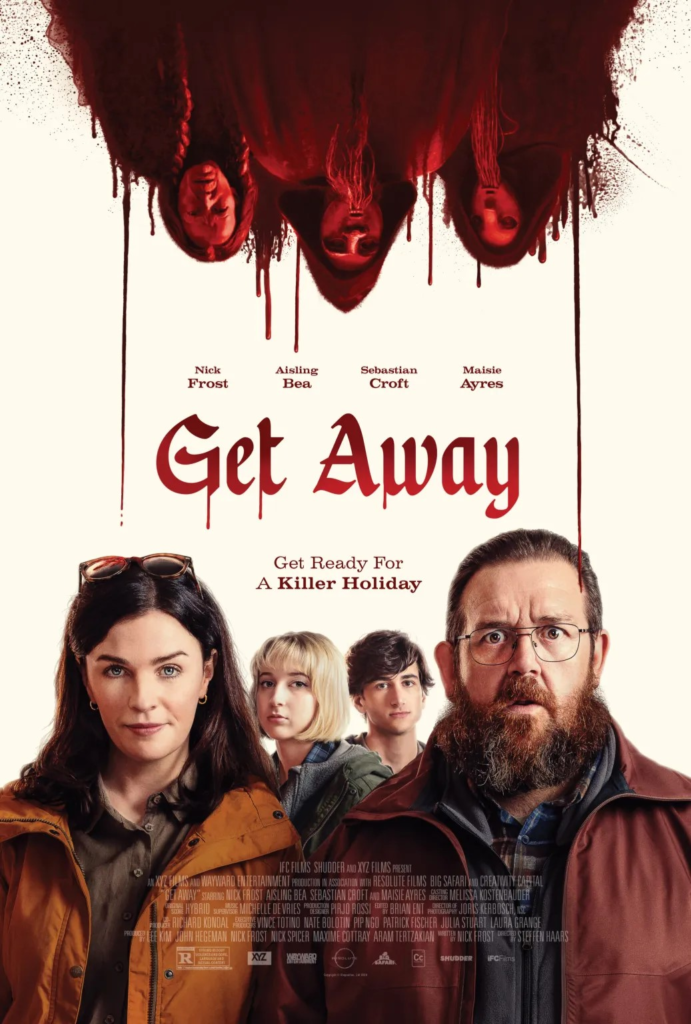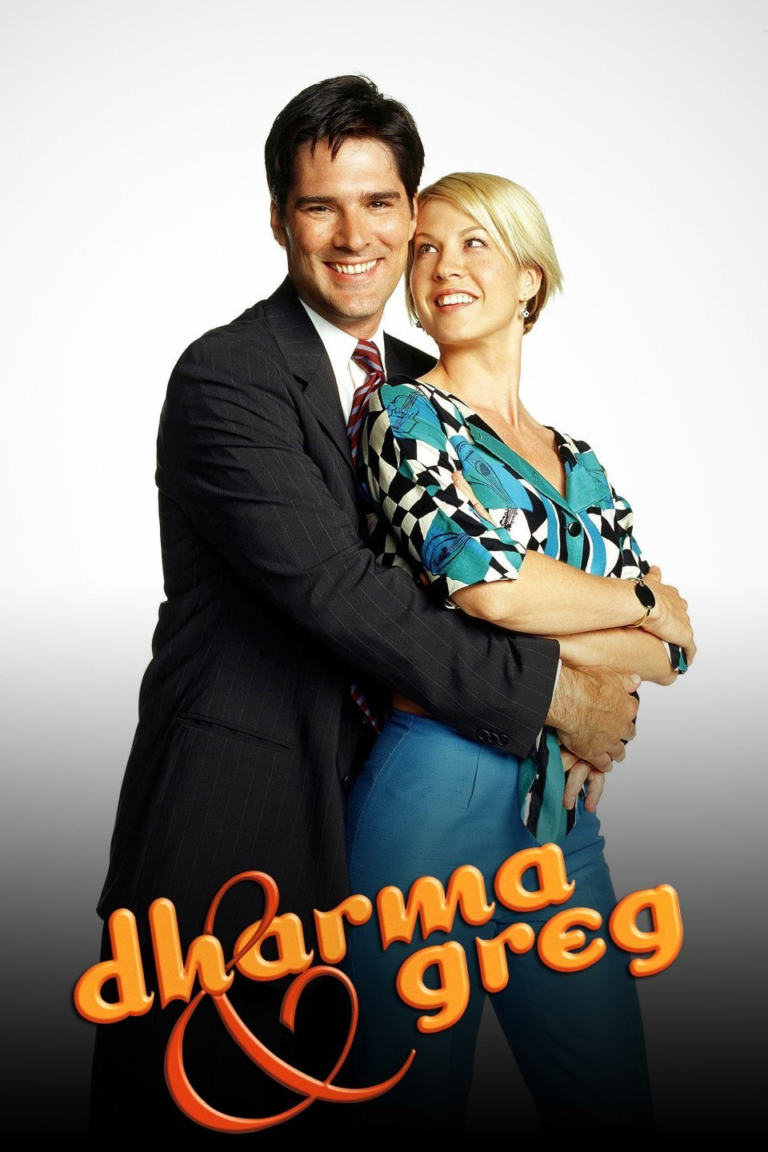Get Away Christian Review

There’s something inherently chaotic about Get Away. You can’t pin it down to a single genre or vibe—it zigzags between a dark comedy and a folk-horror fever dream like a wayward tourist on a sketchy detour. And that’s exactly the point. Steffen Haars has taken a classic trope—the naïve vacationers stumbling into a nightmare—and spun it on its head. This isn’t your typical horror-comedy. It’s trying to say something more, though it doesn’t always know exactly what. For Christians, watching this movie is a mixed experience, blending intrigue, amusement, and a dash of discomfort.
Vacation Gone Wrong… Again?
If you’ve seen one horror movie about clueless travelers, you might think you’ve seen them all. Get Away knows this. It lures you in with the familiar setup—obnoxious tourists, mysterious locals, the gradual unraveling of paradise—and then twists it. The movie plays coy, letting you think you know where it’s going before pulling the rug out.
This unpredictability is part of its charm. But it’s also part of its challenge. As Christians, we’re not just casual consumers of stories; we’re seekers of truth. A movie like Get Away tempts us to laugh at the absurdity of human folly while subtly exposing deeper, darker realities about sin, selfishness, and moral blindness. It forces us to wonder: what would we do if we were these characters? Would we see the warning signs? Would we repent? Or would we stumble into destruction like sheep without a shepherd?
The Satirical Edge: Sharp, But Not Always Pointed
Satire is tricky business. It can be a scalpel, exposing the flaws in humanity with precision, or it can be a sledgehammer, smashing its point into the ground until it loses all nuance. Get Away leans heavily on satire, poking fun at the stereotypes we associate with vacationers: the oblivious American, the thrill-seeker who pushes too far, the self-absorbed influencer chasing a picture-perfect moment. These caricatures are funny, sure, but they also serve as masks for the film’s darker intentions.
The humor is biting, but it doesn’t always lead somewhere meaningful. As Christians, we’re called to laugh at the ridiculousness of human pride and folly, but we’re also called to seek redemption in the mess. Here, the satire feels more cynical than redemptive, as if the film is content to mock its characters without offering them—or us—a way out. It’s a bit like watching a modern parable with no moral at the end. You’re left wondering: was that the point?
Comedy Meets Horror: Uneasy Bedfellows
Balancing comedy and horror is like walking a tightrope. Lean too far one way, and you lose the tension; lean too far the other, and the humor feels out of place. Get Away wobbles on this tightrope. Some moments are genuinely funny, while others feel jarring against the backdrop of the film’s darker, more sinister elements.
For Christian viewers, this tonal inconsistency can be disorienting. Horror has a unique way of highlighting the consequences of sin and the fragility of human life, while comedy can remind us not to take ourselves too seriously. But when the two clash, as they often do in Get Away, it’s hard to know what to take seriously and what to laugh off.
Nick Frost’s performance, for example, is a standout. He walks the line between absurdity and menace with a deftness that keeps you guessing. But the humor sometimes undermines the horror, and vice versa, leaving you unsure whether to cringe, chuckle, or both.
Themes of Deception and Darkness
If there’s one theme that stands out in Get Away, it’s the idea of hidden dangers. The movie thrives on deception—not just the kind that happens between characters, but the kind that happens to us as viewers. It sets up expectations, then gleefully shatters them, leaving us to pick up the pieces.
This focus on deception feels deeply biblical. The Bible warns us again and again to be watchful, to test the spirits, to avoid being led astray by things that look good on the surface but hide rot underneath (Matthew 7:15-20). In Get Away, the characters are blind to the traps around them, and their ignorance leads them into disaster.
But here’s the rub: the movie doesn’t offer much in the way of redemption. It exposes the darkness but doesn’t shine any light. For Christians, this can be frustrating. We’re accustomed to stories that at least hint at hope, even in the bleakest moments. Get Away seems content to leave its characters—and its audience—wandering in the dark.
Performances: A Saving Grace
What keeps Get Away from collapsing under its own ambition is the strength of its performances. Frost is, of course, a standout, but the entire cast brings a groundedness to their roles that makes the absurdity of the plot feel believable. They’re not just caricatures; they’re people, flawed and foolish but relatable nonetheless.
As Christians, we’re called to see the humanity in everyone, even those who make terrible choices. The performances in Get Away help us do that. They remind us that sin isn’t just something “other people” do—it’s something we’re all prone to.
A Cult Classic in the Making?
It’s easy to see why Get Away might develop a cult following. Its chaotic energy, sharp humor, and willingness to take risks make it stand out in a sea of formulaic horror-comedies. But for Christian viewers, its appeal is more complicated. While it offers moments of cleverness and insight, its lack of moral clarity and uneven tone make it a tough sell.
Is it entertaining? Yes, in a strange, off-kilter way. Is it edifying? Not particularly. And that’s okay—sometimes art exists to provoke, not to preach. But for Christians, watching a film like Get Away requires discernment. It’s not just about enjoying the ride; it’s about asking what the ride is teaching us, and whether it aligns with the truths we hold dear.
Final Reflections
Get Away is a rollercoaster of a movie—messy, unpredictable, and often frustrating, but never boring. It challenges you to think about human nature, sin, and the masks we wear, even if it doesn’t always know what it wants to say about them.
For Christians, it’s a mixed bag. There’s value in its satire and its exploration of deception, but its lack of hope and its uneven tone leave it feeling incomplete. It’s the kind of movie you’ll think about long after it’s over, not because it changed your perspective, but because it left so many questions unanswered.
In the end, Get Away earns a 6/10. It’s creative, daring, and occasionally insightful, but it falls short of being truly profound. For those willing to approach it with discernment, it’s worth a watch—but don’t expect it to feed your spirit. Instead, let it spark reflection on the truths that really matter: the dangers of sin, the need for vigilance, and the hope we have in Christ, even when the world feels as chaotic as a horror-comedy on a vacation gone wrong.






